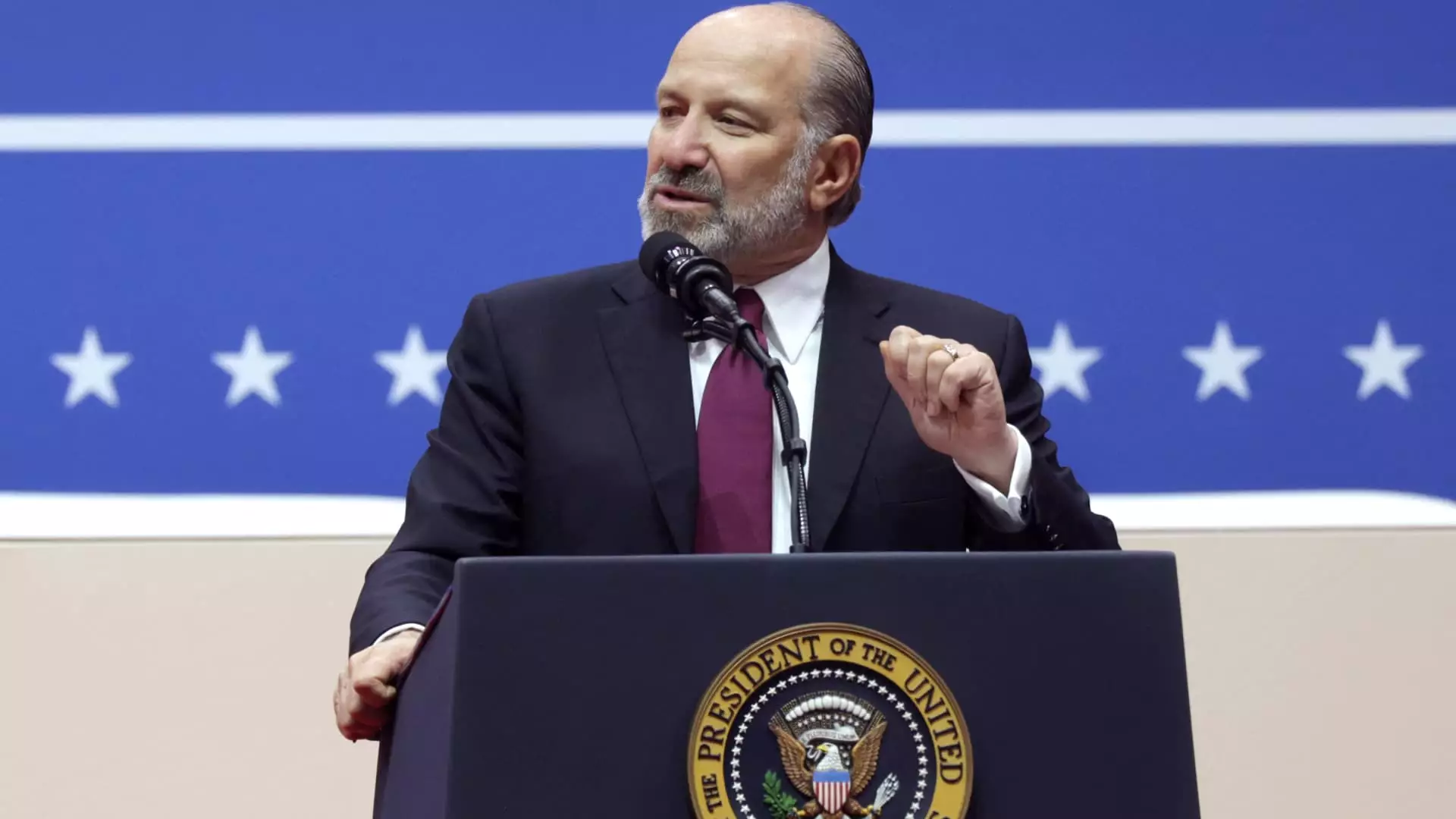In a political landscape rife with uncertainty, President Donald Trump’s administration continues to oscillate between promises and realities, especially concerning tariffs. Recently, Commerce Secretary Howard Lutnick doused the hopes of many by suggesting that the exemption for certain electronics faced a precarious future. This rhetoric not only manipulates public perception but also underscores a critical issue: Tariff relief is merely a mirage, designed to placate both consumers and corporations amidst an increasingly volatile trade war.
Lutnick’s remarks on ABC News unveiled the underlying tension within the administration, as he hinted that the exemptions meant to provide a temporary reprieve for electronics—products like smartphones and computing devices—are anything but permanent. The looming specter of semiconductor tariffs emphasizes a worrying trend; the administration seems eager to impose higher costs on consumers without a coherent strategy. This lack of clarity fosters confusion, undermining consumer confidence while simultaneously eroding trust in the administration’s capabilities.
The Human Cost of Tariffs
The implications of these tariffs extend far beyond corporate boardrooms. Prices for essential electronics are set to surge, burdening everyday Americans who rely on technology to conduct their daily lives. The cycle of rising costs is unsustainable; such tariffs inherently place the financial burden on the consumer, pushing many into an uncomfortable fiscal corner. As Lutnick insists that America must produce its essential goods domestically, the irony lies in the fact that the current approach could lead to severe economic repercussions for the very citizens it claims to protect.
It’s essential to acknowledge the notion that national security extends beyond mere product origin—it encompasses economic stability and consumer welfare. Instead of fostering a sustainable domestic manufacturing ecosystem, the administration’s knee-jerk policy decisions threaten to alienate the consumers who are the backbone of economic resilience.
An Erosion of Credibility
Democratic Senator Cory Booker aptly points out the impending crisis of credibility affecting the Trump administration. Indeed, the mixed messages pertaining to tariffs cultivate a perception of chaos, making the U.S. economy a precarious chessboard at the mercy of unpredictable moves. Such instability does not foster the conditions necessary for business growth or international cooperation. Instead, it stifles innovation, driving companies either to absorb costs or, worse, pass them onto consumers.
The fluctuating policies can be seen as a tactic to distract from the broader socio-economic issues that plague the country—income inequality, job security, and economic mobility. In a time when the average American is striving to keep pace with escalating living costs, the administration’s pursuit of partisan agendas through tariffs stands as yet another obstacle in the way of meaningful progress.
In a world increasingly interlinked, the idea that America should solely depend on domestic production is naïve at best and dangerously regressive at worst. As the rhetoric surrounding tariffs continues to evolve, consumers are left to grapple with uncertainty, all while the administration pushes an agenda that may prioritize protectionism over practical solutions to our economic woes. We are at a crossroads; the choice to protect or to progress looms larger than ever.


Leave a Reply